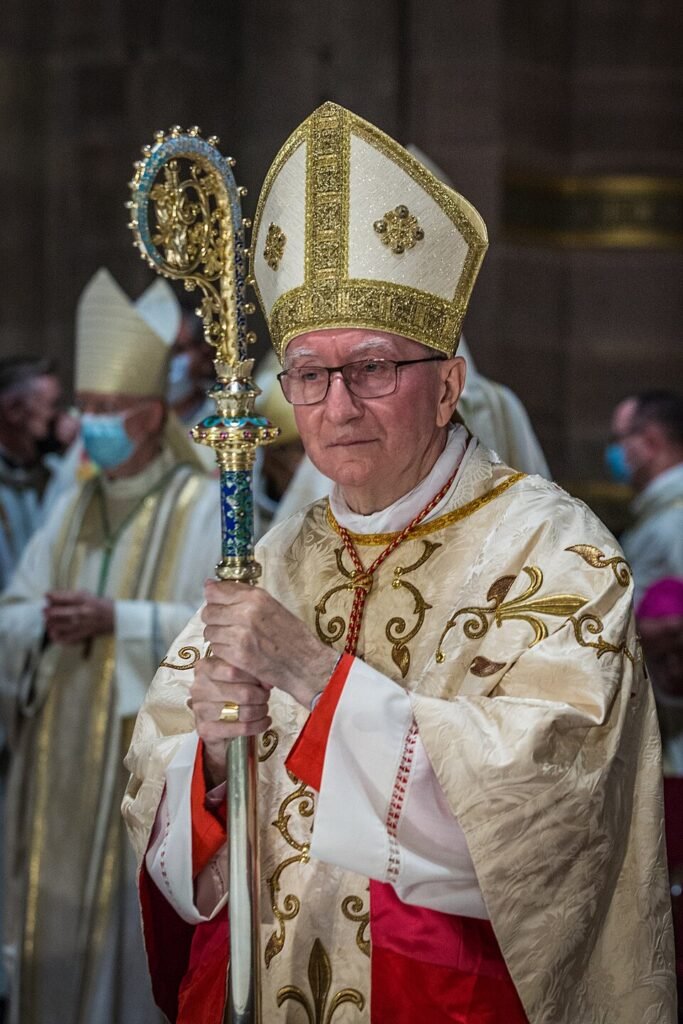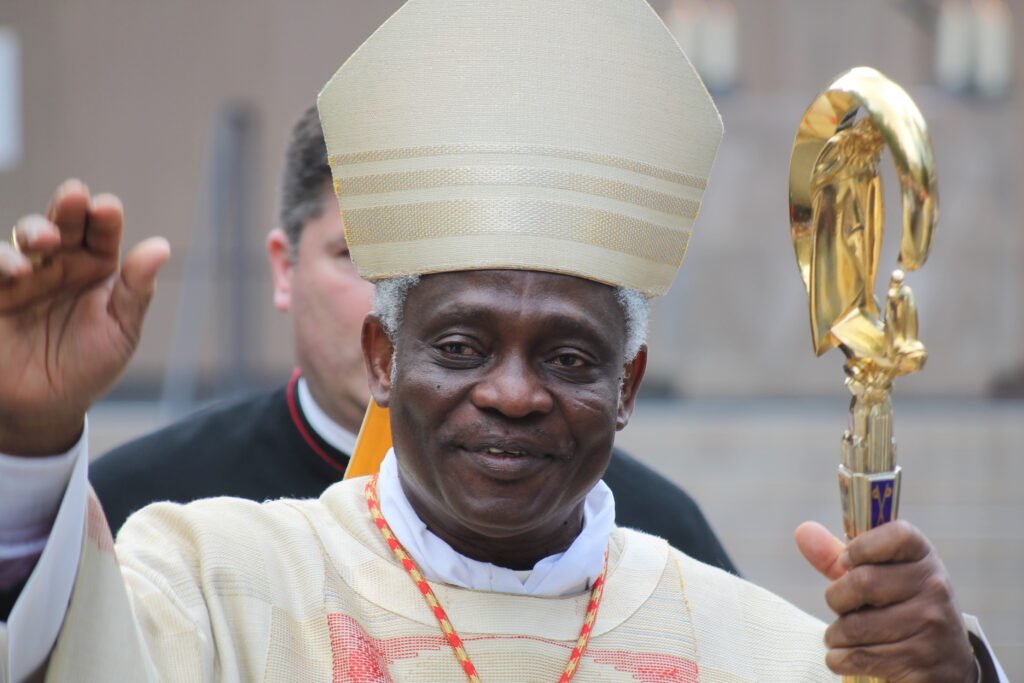World News
Which Cardinal Could Become the Next Pope?
Inside the Race for the Vatican’s Highest Office
As the world mourns the passing of Pope Francis, a pivotal question grips the Catholic Church’s 1.4 billion faithful: Who will be the next pope? The answer will shape not only the future of Catholicism but also the Church’s role in global affairs, social justice, and interfaith dialogue. The coming conclave promises both tradition and surprise, with several cardinals standing out as frontrunners in this historic moment.
The Top Contenders: A New Era Beckons
1. Cardinal Luis Antonio Tagle: The “Asian Francis”
Cardinal Tagle, 67, from the Philippines, is the most talked-about candidate and could become the first Asian pope in history.

He is celebrated as the “Asian Francis” for his deep commitment to social justice, inclusion, and outreach to the marginalized. Tagle currently heads the Dicastery for Evangelization, one of the Vatican’s most influential departments, and is seen as a close ally of Pope Francis. His charisma, humility, and progressive vision have made him a favorite among reform-minded cardinals and laity alike.
If elected, Tagle would not only make history as the first Asian pontiff but also signal a strong endorsement of Pope Francis’s legacy of compassion and reform.
2. Cardinal Pietro Parolin: The Vatican’s Diplomat
Cardinal Parolin, 70, from Italy, is the Vatican Secretary of State and a seasoned diplomat.

He has played a pivotal role in the Church’s international relations, including groundbreaking negotiations with China and the Middle East. Parolin is widely respected for his moderation and ability to bridge divides between progressives and conservatives within the College of Cardinals. His deep experience in Vatican governance positions him as a candidate of stability and continuity.
Parolin’s election would likely mean a steady hand at the helm, balancing tradition with the ongoing reforms initiated by Francis.
3. Cardinal Peter Turkson: The Voice of Africa
Cardinal Turkson, 76, from Ghana, stands as a powerful symbol of the Church’s global reach and its commitment to social justice.

As the former head of the Dicastery for Promoting Integral Human Development, Turkson has championed issues such as poverty, climate change, and economic inequality. His election would be historic, making him the first African pope in over 1,500 years. Turkson’s leadership style is marked by a strong moral voice and a global perspective, resonating with cardinals seeking a pontiff who can address the Church’s humanitarian mission worldwide.
A Turkson papacy would underscore the Church’s increasing focus on the Global South and its most pressing moral challenges.
What’s at Stake?
The next pope will inherit a Church at a crossroads—torn between tradition and reform, facing secularization in the West and explosive growth in the Global South. The choice of pope will determine whether the Church continues on Francis’s path of openness and dialogue or pivots toward a more conservative, doctrinal approach.
The conclave’s outcome is far from certain.
History shows that papal elections can surprise even the most seasoned Vatican watchers. However, the prominence of Tagle, Parolin, and Turkson reflects the Church’s evolving priorities: global representation, social justice, and experienced leadership.
The World Watches and Waits
As the cardinals prepare to gather in the Sistine Chapel, the world watches with anticipation. Will the Catholic Church embrace its first Asian or African pope, or will it turn to a seasoned European diplomat for guidance? The answer will reverberate far beyond the walls of the Vatican, shaping the spiritual and moral direction of the 21st century.
The next pope will not only lead the world’s largest Christian community but also become a global voice for peace, justice, and compassion.

Bolanle Media covers a wide range of topics, including film, technology, and culture. Our team creates easy-to-understand articles and news pieces that keep readers informed about the latest trends and events. If you’re looking for press coverage or want to share your story with a wider audience, we’d love to hear from you! Contact us today to discuss how we can help bring your news to life
News
US May Completely Cut Income Tax Due to Tariff Revenue

President Donald Trump says the United States might one day get rid of federal income tax because of money the government collects from tariffs on imported goods. Tariffs are extra taxes the U.S. puts on products that come from other countries.

What Trump Is Saying
Trump has said that tariff money could become so large that it might allow the government to cut income taxes “almost completely.” He has also talked about possibly phasing out income tax over the next few years if tariff money keeps going up.
How Taxes Work Now
Right now, the federal government gets much more money from income taxes than from tariffs. Income taxes bring in trillions of dollars each year, while tariffs bring in only a small part of that total. Because of this gap, experts say tariffs would need to grow by many times to replace income tax money.
Questions From Experts
Many economists and tax experts doubt that tariffs alone could pay for the whole federal budget. They warn that very high tariffs could make many imported goods more expensive for shoppers in the United States. This could hit lower- and middle‑income families hardest, because they spend a big share of their money on everyday items.
What Congress Must Do
The president can change some tariffs, but only Congress can change or end the federal income tax. That means any real plan to remove income tax would need new laws passed by both the House of Representatives and the Senate. So far, there is no detailed law or full budget plan on this idea.

What It Means Right Now
For now, Trump’s comments are a proposal, not a change in the law. People and businesses still have to pay federal income tax under the current rules. The debate over using tariffs instead of income taxes is likely to continue among lawmakers, experts, and voters.
News
Epstein Files to Be Declassified After Trump Order

Former President Donald Trump has signed an executive order directing federal agencies to declassify all government files related to Jeffrey Epstein, the disgraced financier whose death in 2019 continues to fuel controversy and speculation.
The order, signed Wednesday at Trump’s Mar-a-Lago estate, instructs the FBI, Department of Justice, and intelligence agencies to release documents detailing Epstein’s network, finances, and alleged connections to high-profile figures. Trump described the move as “a step toward transparency and public trust,” promising that no names would be shielded from scrutiny.
“This information belongs to the American people,” Trump said in a televised statement. “For too long, powerful interests have tried to bury the truth. That ends now.”
U.S. intelligence officials confirmed that preparations for the release are already underway. According to sources familiar with the process, the first batch of documents is expected to be made public within the next 30 days, with additional releases scheduled over several months.
Reactions poured in across the political spectrum. Supporters praised the decision as a bold act of accountability, while critics alleged it was politically motivated, timed to draw attention during a volatile election season. Civil rights advocates, meanwhile, emphasized caution, warning that some records could expose private victims or ongoing legal matters.
The Epstein case, which implicated figures in politics, business, and entertainment, remains one of the most talked-about scandals of the past decade. Epstein’s connections to influential individuals—including politicians, royals, and executives—have long sparked speculation about the extent of his operations and who may have been involved.

Former federal prosecutor Lauren Fields said the release could mark a turning point in public discourse surrounding government transparency. “Regardless of political stance, this declassification has the potential to reshape how Americans view power and accountability,” Fields noted.
Officials say redactions may still occur to protect sensitive intelligence or personal information, but the intent is a near-complete disclosure. For years, critics of the government’s handling of Epstein’s case have accused agencies of concealing evidence or shielding elites from exposure. Trump’s order promises to change that narrative.
As anticipation builds, journalists, legal analysts, and online commentators are preparing for what could be one of the most consequential information releases in recent history.
Politics
Netanyahu’s UN Speech Triggers Diplomatic Walkouts and Mass Protests

What Happened at the United Nations
On Friday, Israeli Prime Minister Benjamin Netanyahu addressed the United Nations General Assembly in New York City, defending Israel’s ongoing military operations in Gaza. As he spoke, more than 100 delegates from over 50 countries stood up and left the chamber—a rare and significant diplomatic walkout. Outside the UN, thousands of protesters gathered to voice opposition to Netanyahu’s policies and call for accountability, including some who labeled him a war criminal. The protest included activists from Palestinian and Jewish groups, along with international allies.

Why Did Delegates and Protesters Walk Out?
The walkouts and protests were a response to Israel’s continued offensive in Gaza, which has resulted in widespread destruction and a significant humanitarian crisis. Many countries and individuals have accused Israel of excessive use of force, and some international prosecutors have suggested Netanyahu should face investigation by the International Criminal Court for war crimes, including claims that starvation was used as a weapon against civilians. At the same time, a record number of nations—over 150—recently recognized the State of Palestine, leaving the United States as the only permanent UN Security Council member not to join them.
International Reaction and Significance
The diplomatic walkouts and street protests demonstrate increasing global concern over the situation in Gaza and growing support for Palestinian statehood. Several world leaders, including Colombia’s President Gustavo Petro, showed visible solidarity with protesters. Petro called for international intervention and, controversially, for US troops not to follow orders he viewed as supporting ongoing conflict. The US later revoked Petro’s visa over his role in the protests, which he argued was evidence of a declining respect for international law.

Why Is This News Important?
The Gaza conflict is one of the world’s most contentious and closely-watched issues. It has drawn strong feelings and differing opinions from governments, activists, and ordinary people worldwide. The United Nations, as an international organization focused on peace and human rights, is a key arena for these debates. The events surrounding Netanyahu’s speech show that many nations and voices are urging new action—from recognition of Palestinian rights to calls for sanctions against Israel—while discussion and disagreement over the best path forward continue.
This episode at the UN highlights how international diplomacy, public protests, and official policy are all intersecting in real time as the search for solutions to the Israeli-Palestinian conflict remains urgent and unresolved.

 Entertainment3 weeks ago
Entertainment3 weeks agoWhat the Epstein Files Actually Say About Jay-Z

 Film Industry4 weeks ago
Film Industry4 weeks agoTurning One Short Film into 12 Months of Content

 Film Industry4 weeks ago
Film Industry4 weeks ago10 Ways Filmmakers Are Building Careers Without Waiting for Distributors

 Film Industry3 weeks ago
Film Industry3 weeks agoAI Didn’t Steal Your Job. It Revealed Who Actually Does the Work.

 Entertainment2 weeks ago
Entertainment2 weeks agoWhat Epstein’s Guest Lists Mean for Working Filmmakers: Who Do You Stand Next To?

 Film Industry3 weeks ago
Film Industry3 weeks agoHow to Write a Logline That Makes Programmers Hit Play

 News3 weeks ago
News3 weeks agoCatherine O’Hara: The Comedy Genius Who Taught Us That Character Is Everything

 Entertainment3 days ago
Entertainment3 days agoYou wanted to make movies, not decode Epstein. Too late.




































